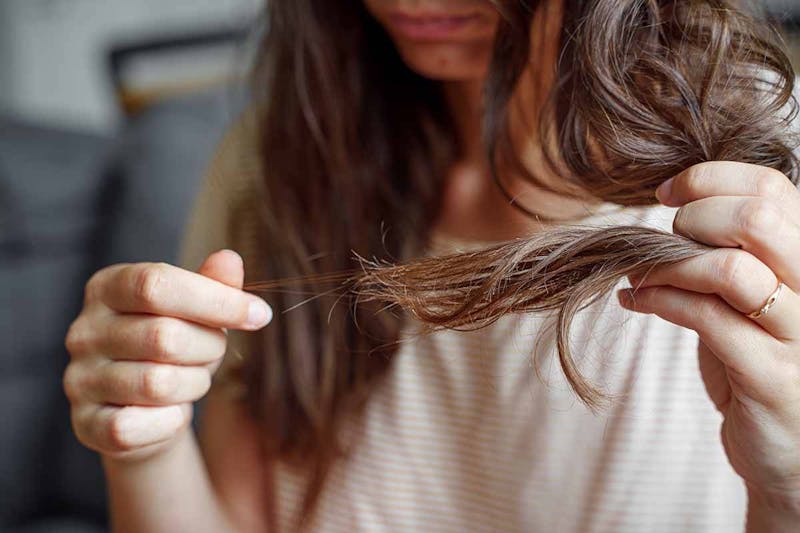Rooted in Results Let’s Get Growing
Hair loss is a symptom. We begin every journey by finding the cause, so your treatment plan isn’t just hopeful—it’s strategic, personalized, and proven to work.
Contact Our Team
Polycystic ovary syndrome (PCOS) is a menstrual hormone disorder that many women suffer from and affects 5-10% of women, including NBC’s television show Superstore’s Lauren Ash, who has been open about living with PCOS. Extensive research is being done on PCOS and hair loss relations.
PCOS is a hormone disorder that can cause a range of symptoms, including both hirsutism and androgenic alopecia. Hirsutism is defined as excessive terminal hair growth on the upper lip, chin, periareolar, and mid sternum/lower abdomen areas.
While many with PCOS experience excessive hair growth on parts of their body, unfortunately, many also experience hair thinning on their scalp. Hair loss associated with PCOS is typically known as androgenic alopecia, which is more commonly known as female pattern hair loss (FPHL). It is important to note that hirsutism and androgenic alopecia are not mutually exclusive, as an individual can experience both.
The name polycystic ovary syndrome describes the small cysts (fluid-filled sacs) that can form in the ovaries. There are some cases where a female does not produce enough hormones that are needed to ovulate. When this happens, the ovaries can develop small cysts. Women with PCOS do not necessarily form cysts, and women without the condition can develop cysts. These cysts produce hormones called androgens. Those suffering from PCOS often have high levels of these hormones, causing the symptoms of PCOS. It is important to note that having an ovarian cyst is not enough information to diagnose PCOS, and those who suspect should consult with their doctor.
PCOS puts women at risk for female pattern hair loss. Research has shown that “FPHL specifically is reported as a clinical sign of hyperandrogenism associated with PCOS,” according to the National Library of Medicine.
Other symptoms of PCOS can include:
Unlike hair loss from stress (Telogen Effluvium), which can regrow on its own, the hair loss caused by PCOS will need to be treated.
It is not entirely clear as to what causes PCOS, though there could be multiple factors such as insulin resistance, obesity, and even family genetics. While there is more research to be done on PCOS and hair loss, there are ways to help with FPHL.
When you come to the hair loss specialists at Medi Tresse, we book you for a one-hour consultation. This is how long it takes to complete a full hair loss evaluation. You will get a full medical evaluation at your first visit. A trained medical professional will take your medical and hair loss history, do a hair pull test, blood work, perform trichoscopy, and take a biopsy of the scalp if necessary.
As the hair loss associated with PCOS is due to a hormone imbalance causing elevated male hormones or androgens, Medi Tresse recommends the same types of treatments that are recommended to patients with androgenic alopecia. This could be any combination of PRP/OPC therapy, LLLT, topical minoxidil, and supplements. Tresse rejuvenation therapy is a combination of in-office treatments, such as Optimal Platelet Concentration Therapy or Platelet Rich Plasma (PRP) Therapy, and at-home treatments like Low-Level Laser Therapy (LLLT), FDA approved topicals, and vitamins and supplements.
These treatments would be specific to the hair. The practitioner would make other recommendations to ensure that hormone levels were at appropriate levels as well.